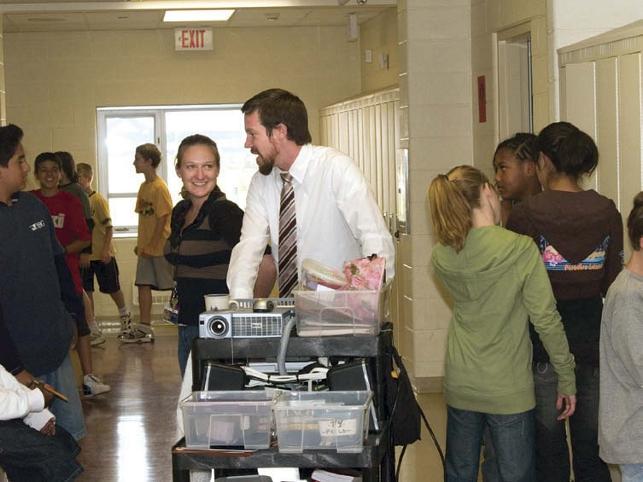
French Language Teachers Need Support (CTF Report)
The Canadian Teachers’ Federation has long advocated that students in elementary and secondary schools should have access to FSL programs and that French as a second language teachers should be fully supported in their work. A pan-Canadian survey of FSL teachers shows that much more needs to be done.
In 2006 CTF partnered with the Canadian Association of Second Language Teachers (CASLT), and the Canadian Association of Immersion Teachers (CAIT) to conduct a national survey of French as a second language (FSL) teachers. Heritage Canada funded the survey.
The survey was completed by 1,305 FSL teachers who teach immersion, core, extended, and intensive French. They answered questions about their perceptions of resources, support from key stakeholders, teaching conditions, and professional development opportunities. The results of the survey were presented to the CTF board last spring.
Here is what we heard. The majority of teachers say that;
- commercial materials and library resources are “poor” or “adequate”
- funding for activities is a concern
- the availability of French-speaking supply teachers, consultants for students with special needs, and French-speaking nonteaching staff are also concerns
- teaching conditions are “slightly” or “some- what” manageable (“Class diversity” was the challenge most often mentioned.)
- the community in which they teach is the “least supportive” of their work while school administration is “very supportive.”
Significantly, more than 40 percent of teachers do not have a classroom dedicated to FSL or an FSL consultant to help them with their teaching.
Professional development is also a great concern. Most FSL teachers say that although they participate in PD activities, more funding, relevant topics, sessions during school hours, and the availability of French-speaking supply teachers would make PD more accessible.
The bilingual and bicultural character of Canada is an historical, constitutional, and social fact of the highest importance to the Canadian confederation. French as a second language edu- cation makes an important contribution to the building of our national character.
CTF believes FSL should be an integral part of the basic curriculum in Canadian schools, not an afterthought. Conveying French language and culture within an English-dominant environment is a great challenge. Dedicated classroom space and quality resources are required, opportunities for professional development are essential and, most importantly, acknowledging FSL teaching as important and valuable work is fundamental.
CTF will take an active role in working with our partners at CASLT and the CAIT to develop and help implement an action plan that addresses the needs so clearly expressed in this survey.
CTF is committed to encouraging the support required to ensure optimum FSL teaching and learning environments in Canadian schools.